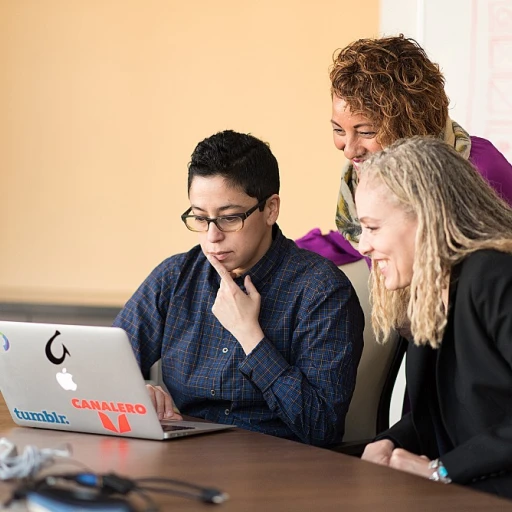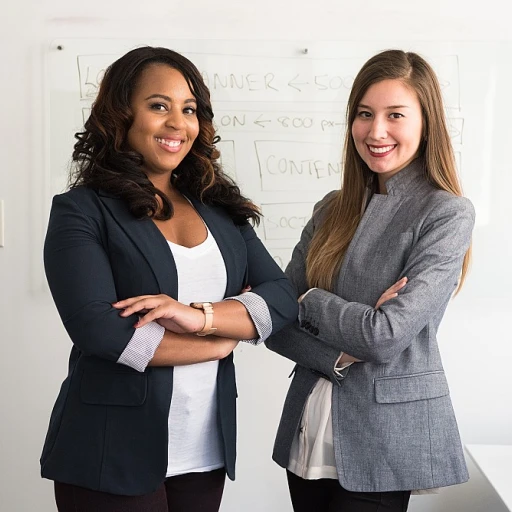
Understanding the Training Facilitator's Role
Defining the Role of a Training Facilitator
The role of a training facilitator is pivotal in the realm of upskilling. These professionals are not just trainers; they are the architects of learning experiences. A training facilitator is responsible for guiding learners through training programs, ensuring that the learning environment is conducive to effective knowledge transfer. This involves a blend of skills, including the ability to manage group dynamics, adapt to different learning styles, and maintain engagement throughout training sessions.
Bridging the Gap Between Knowledge and Application
Facilitators play a crucial role in bridging the gap between theoretical knowledge and practical application. They are tasked with translating complex subject matter into digestible content that learners can apply in real-world scenarios. This requires a deep understanding of the subject matter and the ability to communicate it effectively. Facilitators must also be adept at using various facilitation skills to encourage participation and foster a collaborative learning environment.
Adapting to Modern Learning Environments
In today’s digital age, training facilitators must be versatile, adapting to both in-person and virtual training sessions. The rise of online courses and virtual programs has transformed the way facilitation is conducted. Facilitators need to be comfortable with technology and able to engage learners in a virtual setting. This shift has introduced new challenges but also opportunities for facilitators to innovate and enhance their facilitation skills.
Facilitators as Change Agents
Training facilitators are often seen as change agents within organizations. They are instrumental in driving learning development and skills training initiatives that align with organizational goals. By fostering a culture of continuous learning, facilitators help organizations remain competitive in an ever-evolving marketplace. Their role extends beyond delivering training; they are key players in shaping the future workforce.
For more insights on how remote work is reshaping employee training, explore this resource.
Key Skills for Effective Facilitation
Vital Competencies for Successful Facilitation
Embracing the role of a training facilitator is no small feat, especially with the ever-evolving landscape of training programs. As facilitators navigate through these dynamic environments, several key skills come into play to ensure effective facilitation. Communication MasteryA pivotal skill needed by training facilitators is the ability to communicate effectively with diverse learners. This involves not only clearly articulating information but also keenly listening and adapting to the needs of the group. Excellent communication skills establish a connection with participants, which nurtures a conducive learning environment. Adaptability and Flexibility
Challenges in facilitation may arise, requiring quick thinking and versatility. Facilitators must adapt their strategies according to the group's responses and unforeseen circumstances that could impact training sessions. Whether conducting an in-person workshop or managing a virtual program, adaptability is essential. Time Management
An effective facilitator is also skilled in managing training sessions efficiently, ensuring that all aspects of the program are covered in the allotted time. This includes being prepared to handle unexpected changes while keeping the learning objectives on track. Strong Organizational Skills
From planning a course to executing it, organizational prowess is crucial. Facilitators must organize materials, coordinate sessions, and ensure that the online course or traditional program aligns with the learning goals. Facilitation Skills Development
Continuous learning and development of facilitation skills are indispensable. Training facilitators should engage in facilitator certification programs or facilitator training courses to enhance their abilities. Embracing new methods and technologies also keeps facilitators ahead in their roles. Empathy and Emotional Intelligence
Among the soft skills, empathy allows facilitators to understand the emotions and perspectives of their learners. By cultivating emotional intelligence, facilitators can create more engaging and inclusive training workshops. Expanding these skills could be further explored in microlearning approaches, to bring a modern twist to developing facilitators' capabilities.
Challenges Faced by Training Facilitators
Overcoming Hurdles in Learning Environments
Facilitating training programs effectively often presents a variety of challenges. These challenges can stem from both internal and external pressures on the training facilitators themselves. Understanding these obstacles is paramount in guaranteeing that learning development objectives are met efficiently.Balancing Diverse Learning Styles
In many training sessions, facilitators often encounter groups of learners with diverse learning styles. This diversity demands that facilitators employ an array of techniques and methods to ensure that all participants gain the most from the program. An effective facilitator must be adept at switching between and integrating different facilitation skills to cater to both visual and auditory learners, as well as those who thrive through practical application.Navigating Technological Barriers
With the increasing trend of online courses and virtual training environments, technological issues are a frequent challenge within training programs. Facilitators must be equipped with the skills to manage these virtual setups effectively, ensuring that technological glitches do not disrupt the flow of learning. Additionally, providing clear guidance on using the platforms can help learners focus more on content acquisition rather than struggling with technical aspects.Time Constraints and Content Overload
Facilitators often find themselves in a race against time, tasked with delivering comprehensive programs within limited timeframes. Structuring training to avoid content overload while still covering essential material is crucial. Time management strategies, such as breaking down content into manageable sessions and using mixed media, can contribute significantly to making learning more effective.Maintaining Engagement in Remote Settings
In virtual training workshops, one primary hurdle is keeping learners engaged. Unlike traditional environments, virtual sessions do not allow facilitators to gauge learner reactions easily. This requires facilitators to find innovative methods to retain attention, such as using interactive activities or virtual breakout rooms to foster group collaboration.Addressing the Skills Gap
A top challenge is bridging the gap between existing and required skills. Facilitators must often tailor programs to adapt to the specific skill enhancements that learners require. This requires close cooperation with human resources teams to identify key areas for improvement and tailor the training program accordingly. Tackling these challenges head-on is essential for facilitators seeking to ensure training programs are both impactful and effective. For a deeper understanding of how these challenges can be addressed, you may explore more on overcoming the hurdles in upskilling, offering practical insights and solutions.Strategies for Successful Upskilling
Implementing the Right Training Strategies
For a training facilitator, developing effective strategies is crucial to the success of any upskilling program. The strategies adopted may vary based on the unique needs of the learners, the type of skills being taught, and the anticipated outcome of the training programs.
Leveraging Technology for Enhanced Learning
With the rise of virtual training environments, embracing technology has become integral. Facilitators can utilize online platforms to deliver dynamic sessions that engage learners. This includes creating interactive content through online courses, facilitating virtual discussions, and employing video conferencing tools. Such tools allow for a more flexible learning experience, accommodating different learning styles and removing geographical limitations.
Balancing Theory and Practice
An effective facilitator balances theoretical instruction with practical applications. This combination enables learners to not only understand the subject matter but also apply it in real-world scenarios. Incorporating hands-on exercises, group work, and role-playing within training workshops can lead to a deeper understanding of the material presented.
Adapting to Learner Feedback
Successful upskilling requires a feedback loop. Facilitators should encourage and be open to feedback. This input can be used to refine facilitation skills and adjust training programs to better meet learners' needs. Engaging continuously with the participants during and after the training sessions helps in adapting strategies for improved outcomes.
Cultivating a Supportive Learning Environment
A supportive environment is vital for effective learning development. Facilitation should focus on fostering an inclusive learning space where learners feel comfortable asking questions and expressing challenges. By nurturing such an environment, facilitators help learners build confidence and enhance the overall effectiveness of training programs.
In conclusion, to remain an effective facilitator in today’s rapidly changing job market, one must remain adaptable, technologically savvy, and continuously refine their facilitation skills through ongoing facilitator training and development programs.
Measuring the Impact of Upskilling
Evaluating Success in Upskilling Initiatives
Measuring the impact of upskilling is crucial for understanding the value of training programs and ensuring they meet the needs of both the organization and its learners. An effective facilitator plays a significant role in this evaluation by guiding the training sessions and ensuring that the learning goals are met. Here are some key elements to consider:
- Feedback Mechanisms: Gathering feedback from learners immediately after training programs provides insights into the effectiveness of the facilitator’s approach and the clarity of the material covered. This can be done through surveys, assessments, or one-on-one discussions.
- Skill Application: Observing how skills acquired during training are applied in the workplace is a tangible measure of success. This can involve monitoring job performance, group projects, or practical application within the organization.
- Continual Learning Development: Facilitators should encourage an environment where learners are motivated to continue their learning journey. This can be tracked through further course enrollments or engagement in advanced training workshops.
- Long-term Outcomes: Beyond immediate feedback, evaluating the long-term application of skills gained during facilitation is vital. This includes career progression and roles taken on by learners over time.
- Program Review: Regularly reviewing and updating training programs ensures that they stay relevant. An effective facilitator collaborates with human resources and subject-matter experts to align the program with organizational goals and learner needs.
The effectiveness of a training facilitator significantly influences the success of these elements, making their role indispensable in the upskilling process. By focusing on these metrics, facilitators and organizations can continually refine and enhance their training initiatives, leading to more impactful outcomes.













